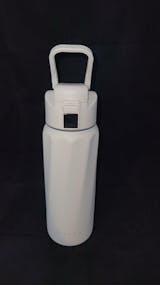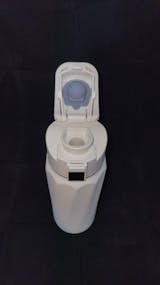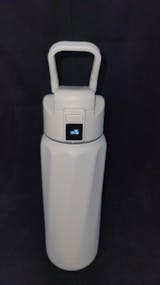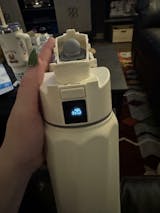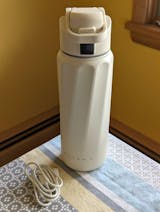
What Is Bioavailability in Hydration and Why It Matters
When it comes to hydration, most people think it’s all about how much water you drink. You fill your bottle, sip throughout the day, and assume you’re good to go. But here’s the truth: not all the water you drink actually hydrates you. This is where the concept of bioavailability comes in — a crucial yet often overlooked factor in effective hydration.
Understanding what bioavailability is

In nutrition science, bioavailability refers to the extent to which a nutrient is absorbed and used by the body. You might eat a meal rich in vitamins and minerals, but if your body can’t absorb them efficiently, you don’t get the full benefits.
The same principle applies to water. Drinking water is only the first step. What truly matters is how effectively your body absorbs and utilizes that water to support essential functions like temperature regulation, joint lubrication, and cellular activity.
What is bioavailability in hydration?
You can drink plenty of water and still be dehydrated if your body isn’t properly absorbing it. Poor hydration can reduce bioavailability, leading to symptoms such as fatigue, headaches, and decreased concentration.
- Osmotic balance: Water moves into and out of cells in response to electrolyte concentrations, especially sodium and potassium.
- Gastric emptying: How quickly your stomach releases its contents into the intestines affects the rate of absorption.
- Cellular transport: Water enters cells through channels called aquaporins, influenced by your body’s electrolyte and hydration status.
In short, bioavailable water is the water your body can use, not just the water you drink.
Why bioavailability matters in hydration
You can drink plenty of water and still be dehydrated if your body isn’t properly absorbing it. Poor hydration can reduce bioavailability, leading to symptoms such as fatigue, headaches, and decreased concentration.
For athletes, efficient hydration is even more critical. Proper fluid absorption enhances endurance, maintains body temperature, and speeds recovery. In contrast, inefficient hydration can lead to muscle cramps, sluggish performance, or heat-related illnesses.
For individuals with certain medical conditions — like kidney issues or digestive disorders — maintaining good hydration bioavailability helps support organ function and overall health. Even in everyday life, it can be the difference between feeling tired and feeling energized.
Factors that influence hydration bioavailability
Several factors can affect how well your body utilizes the water you drink:
1: Type of fluid consumed
- Plain water is great, but it may pass through your system quickly.
- Electrolyte-infused beverages help water absorption at the cellular level.
- Caffeinated or sugary drinks can actually reduce hydration efficiency.
2: Electrolyte balance
- Sodium, potassium, and magnesium help your cells retain water. Without them, water may just flush through your system.
3: Timing of intake
- Gulping large amounts at once may overwhelm the absorption process.
- Sipping consistently throughout the day supports steady hydration.
4: Individual factors
- Age, body composition, physical activity, and even climate affect how your body absorbs and retains water.
5: Food interactions
- Hydrating foods like watermelon, cucumber, and oranges enhance absorption.
- Salty and processed foods can pull water out of cells, hindering hydration.
How to improve hydration bioavailability?
Boosting your hydration bioavailability doesn’t require fancy supplements — just smart habits. Here’s how you can do it:
- Add electrolytes to your water, especially during exercise or hot weather.
- Drink small amounts frequently instead of chugging large quantities.
- Pair water with hydrating foods like fruits and vegetables.
- Monitor your intake with a hydration tracking water bottle to stay on track.
- Avoid overhydration, which can dilute electrolytes and cause imbalances.
These small changes can dramatically improve how your body absorbs and uses water, helping you feel more alert, energetic, and balanced throughout the day.
Simple strategies to increase hydration efficiency
You don’t need to overthink hydration — just hydrate smarter. Here are some easy, practical ways to enhance hydration bioavailability:
- Start your day with a glass of water before coffee.
- Include electrolyte-rich drinks after workouts or during hot weather.
- Eat water-rich foods daily.
- Drink consistently throughout the day instead of waiting until you’re thirsty.
- Pay attention to your body — persistent thirst, dark urine, or fatigue may indicate poor hydration.
Conclusion
Hydration isn’t just about drinking water — it’s about how well your body can absorb and use that water. Understanding bioavailability in hydration helps you go beyond quantity and focus on quality.
By optimizing your water intake, maintaining electrolyte balance, and hydrating consistently, you can boost your body’s efficiency, energy, and overall health. So the next time you reach for a glass of water, remember: it’s not just about drinking more — it’s about hydrating smarter.












